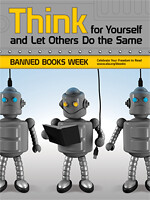A Story of Truth and Hope in an Age of Extremism
Ron Suskind
I found this 2008 book, by Pulitzer Prize winning journalist, Ron Suskind, a bit problematical. Written near the end of the Bush/Cheney second term, it blatantly characterizes George W. Bush as a bully, not in some policy sense, but personally, as the kid who picks on smaller kids in the schoolyard and takes their lunch money. This is a postulate, unsupported by any evidence. Perhaps Suskind had already made that case in a previous book but, if so, he made no reference to it.
Suskind follows several people in the book, in a novelistic sort of way. Are these real people doing and saying real things? Wendy Chamberlin, certainly, is a real diplomat, now at the Middle East Institute. Rolf Mowatt-Larssen actually was a top CIA employee and now works at the Kennedy School of Government. But how about Usman Khosa, from Pakistan or Ibrahim Frontan, a high school exchange student from a small village in Afghanistan? Suskind reports extensive private conversations between these people and friends in Pakistan, Washington D.C., Colorado. Pennsylvania. Did he interview Khosa's sister about what they talked about during a visit to Lahore for a family wedding? Did he talk to the other kids in Frontan's two high schools? I don't know where the reporting leaves off and the fiction begins in The Way of the World. I didn't see much hope in the book, though, even were it one hundred percent truth.
The lesson driven home is that the Bush administration manipulated public opinion and lied about the cause for war in Iraq. We already knew that. Suskind suggests that the U.S. be humble in our policy regarding the Middle East. That hardly seems possible. Do we apologize and pull all our troops out of Afghanistan as quickly as possible. Oops, sorry, our mistake. Politely ask Israel to give Jerusalem to the Palistinians? Not likely, unless we want the Taliban back in Kabul by fall and massive Israeli lobbying against whatever administration took Suskind's advice.
Rolf Mowatt-Larssen is in the book looking for a way to energize the search for stray nuclear material throughout the world. His chapters are frightening and not hopeful at all. Wendy Chamberlin, I think, is the model on which Suskind would like to build a new American foreign policy. She worked on Arab/Israeli relations for the State Department, became the UN High Commissioner on Refugees where she attempted to rally assistance for South Sudan and Darfur. Wouldn't it be great if we could just give food and medicine to everyone in need and not worry about Alkaida, North Korea, Iran or a dozen othe sources of potential chaos?
Ron Suskind
I found this 2008 book, by Pulitzer Prize winning journalist, Ron Suskind, a bit problematical. Written near the end of the Bush/Cheney second term, it blatantly characterizes George W. Bush as a bully, not in some policy sense, but personally, as the kid who picks on smaller kids in the schoolyard and takes their lunch money. This is a postulate, unsupported by any evidence. Perhaps Suskind had already made that case in a previous book but, if so, he made no reference to it.
Suskind follows several people in the book, in a novelistic sort of way. Are these real people doing and saying real things? Wendy Chamberlin, certainly, is a real diplomat, now at the Middle East Institute. Rolf Mowatt-Larssen actually was a top CIA employee and now works at the Kennedy School of Government. But how about Usman Khosa, from Pakistan or Ibrahim Frontan, a high school exchange student from a small village in Afghanistan? Suskind reports extensive private conversations between these people and friends in Pakistan, Washington D.C., Colorado. Pennsylvania. Did he interview Khosa's sister about what they talked about during a visit to Lahore for a family wedding? Did he talk to the other kids in Frontan's two high schools? I don't know where the reporting leaves off and the fiction begins in The Way of the World. I didn't see much hope in the book, though, even were it one hundred percent truth.
The lesson driven home is that the Bush administration manipulated public opinion and lied about the cause for war in Iraq. We already knew that. Suskind suggests that the U.S. be humble in our policy regarding the Middle East. That hardly seems possible. Do we apologize and pull all our troops out of Afghanistan as quickly as possible. Oops, sorry, our mistake. Politely ask Israel to give Jerusalem to the Palistinians? Not likely, unless we want the Taliban back in Kabul by fall and massive Israeli lobbying against whatever administration took Suskind's advice.
Rolf Mowatt-Larssen is in the book looking for a way to energize the search for stray nuclear material throughout the world. His chapters are frightening and not hopeful at all. Wendy Chamberlin, I think, is the model on which Suskind would like to build a new American foreign policy. She worked on Arab/Israeli relations for the State Department, became the UN High Commissioner on Refugees where she attempted to rally assistance for South Sudan and Darfur. Wouldn't it be great if we could just give food and medicine to everyone in need and not worry about Alkaida, North Korea, Iran or a dozen othe sources of potential chaos?











0 comments:
Post a Comment
Comments will be moderated - so keep your comments moderate!
OpenID users will have their blog links again, yay!